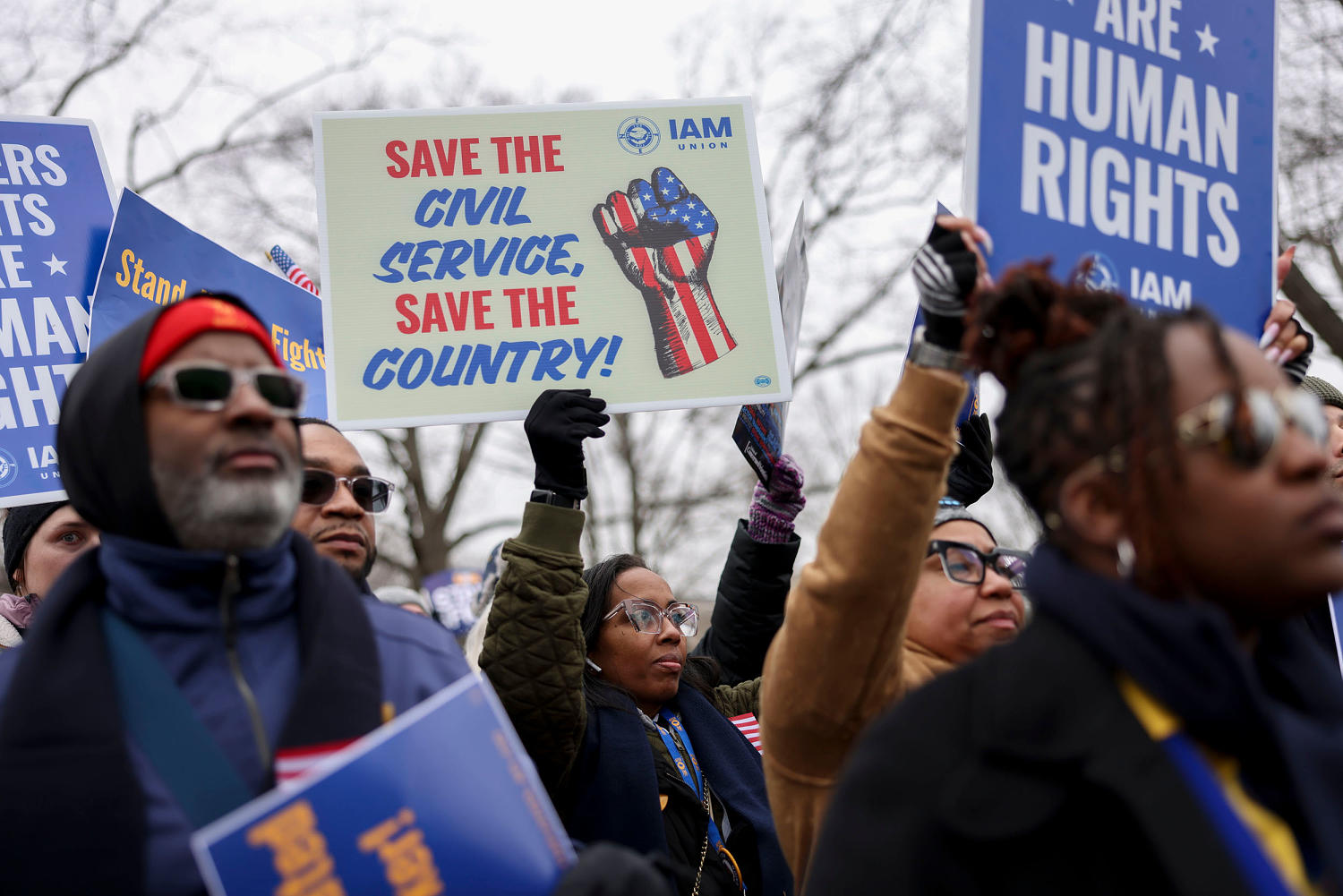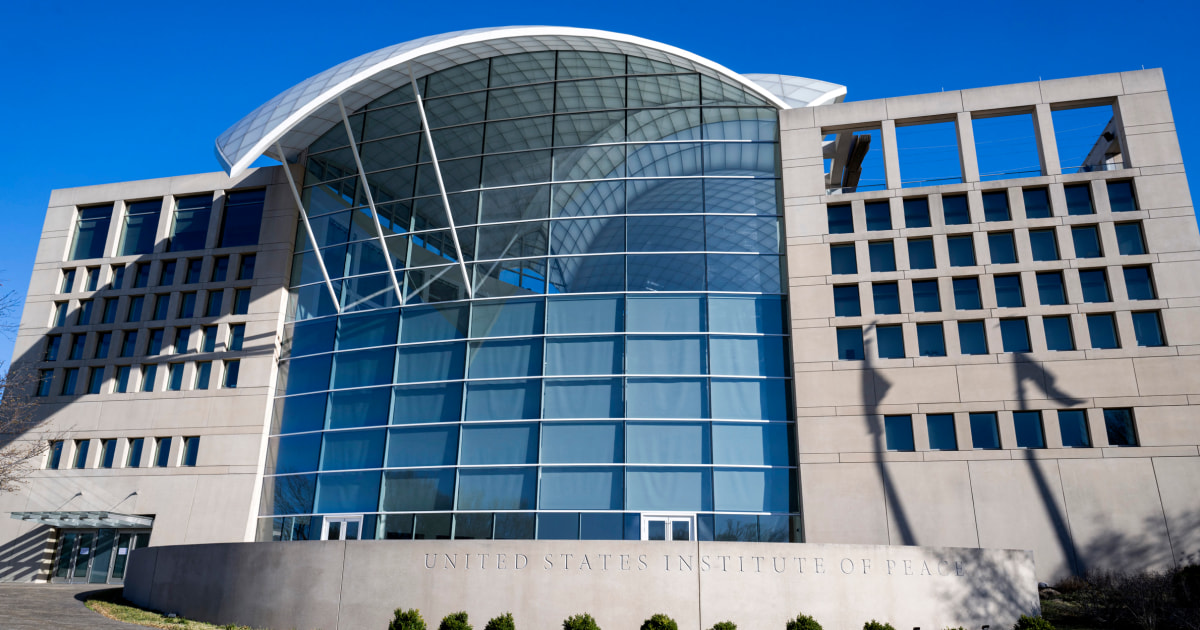
Federal employees across several government agencies filed a class action complaint Wednesday against the Trump administration, claiming it unlawfully fired employees for DEI activities as part of President Donald Trump’s sweeping executive order that banned diversity, equity and inclusion throughout the federal government.
The administration fired employees it perceived as being associated with DEI, the filing alleges, including those who were not involved in any DEI-related activities or whose only DEI-related activity was involvement in a training or employee resource group.
In the complaint, filed to the U.S. Merit Systems Protection Board — an independent, quasi-judicial agency established to protect federal employees against abuses, including politically motivated firings, and is not a federal court — the former employees said that the mass firings violated their First Amendment rights for perceived political stances.
Additionally, the complaint alleges that the anti-DEI executive orders violated Title VII of the Civil Rights Act by disproportionately singling out federal workers who were not white men for hostility, suspicion, job interference and termination.
The complaint was filed by the American Civil Liberties Union of Washington, D.C., private law firms and the legal organization Democracy Forward. The complaint was filed in tandem with numerous charges of discrimination to federal Equal Employment Opportunity offices, related to Trump’s Jan. 20 executive orders that the Office of Personnel Management terminate all activities related to DEI across the government.
“The decision to go after people for DEI work they are no longer doing shows the administration’s true motive: to punish employees who they think hold values that clash with the president’s extremist agenda,” Scott Michelman, legal director at the ACLU-D.C., said in a press release.
The White House did not immediately respond to a request for comment.
The complaint was filed on behalf of Mahri Stáinnak of the Office of Personnel Management. Other appellants include Paige Brown and C. Scott of the Department of Labor, and the Federal Aviation Administration’s Ronisca Chambers. It is unclear how many people have joined the class action complaint, but dozens have filed grievances, according to the ACLU of D.C.
The federal employees are asking to be reinstated to their previous positions and to be compensated for wages lost and other damages.
Other federal workers who believe they were targeted or fired for perceived political affiliations or discriminated against on the basis of their gender or race can join the complaint.
“The team that I belong to that was put on administrative leave was majority women and majority people of color,” Sherrell Pyatt, who is on administrative leave from her job at the Department of Homeland Security, told NBC News. She plans to join the class action complaint.
“It’s disheartening,” she added. “I’m an educated woman, I’m a hard worker. … I do consider myself an expert in my areas of work, and so to know that all of that could be overlooked is unfortunate and a disservice to the American public.”
Stáinnak also expressed feeling betrayed. “By illegally targeting employees across the government, the Trump administration is actually hurting all the people who live and work in this country by denying them the important services we provide,” said Stáinnak, who has worked in the federal government for nearly 17 years.
Kelly M. Dermody, managing partner at Lieff, Cabraser, Heimann & Bernstein, said there was “an assumption made that women of all races, non-binary employees, and people of color generally, were under some cloud of suspicion” when the executive orders outlined what employees would be fired. ”That they were enemies of the ideas of this administration, and that there should be reasons found to get rid of them.”
“That whole approach is not just discrimination under Title Seven of the Civil Rights Act, but is also a violation of First Amendment principles,” Dermody said.
Beyond this complaint, the anti-DEI executive orders are also being challenged in a pair of lawsuits in federal court.
In late February, a federal judge in Maryland temporarily blocked the Trump administration from terminating federal grants and contracts related to DEI initiatives, finding the plaintiffs were likely to prevail on claims that the language in Trump’s orders were “unconstitutionally vague” and that the government was engaging in “viewpoint discrimination.”
A federal appeals court stayed U.S. District Judge Adam Abelson’s order earlier this month as the case goes through the appeals process, with the three judges expressing concern over the scope of the judge’s order. Two of the judges indicated that Trump executive orders did not seem unconstitutional on their own, but they had concerns over the implementation of the order.
In a separate case in Washington, the National Urban League and two other nonprofits sued Trump and the Office of Management and Budget, arguing that the orders “expressly disadvantage people of color, women, LGBTQ people, and people with disabilities who face unfair disadvantages or inequalities by eliminating and delegitimizing targeted efforts that were specifically created to help them overcome the systemic discrimination that produced those disadvantages and inequalities.”
The executive orders “were crafted to disproportionately benefit people of a particular race (white people) while disproportionately harming people of another race (Black people, Indigenous people, Latino people, and Asian American people, among others),” the suit charged, while also challenging the orders’ constitutionality.
The Justice Department has questioned whether the organizations have legal standing to sue, and maintained Trump’s orders do not violate the plaintiffs’ rights to free speech. The judge in that case has yet to rule on the plaintiffs’ request for an injunction.








